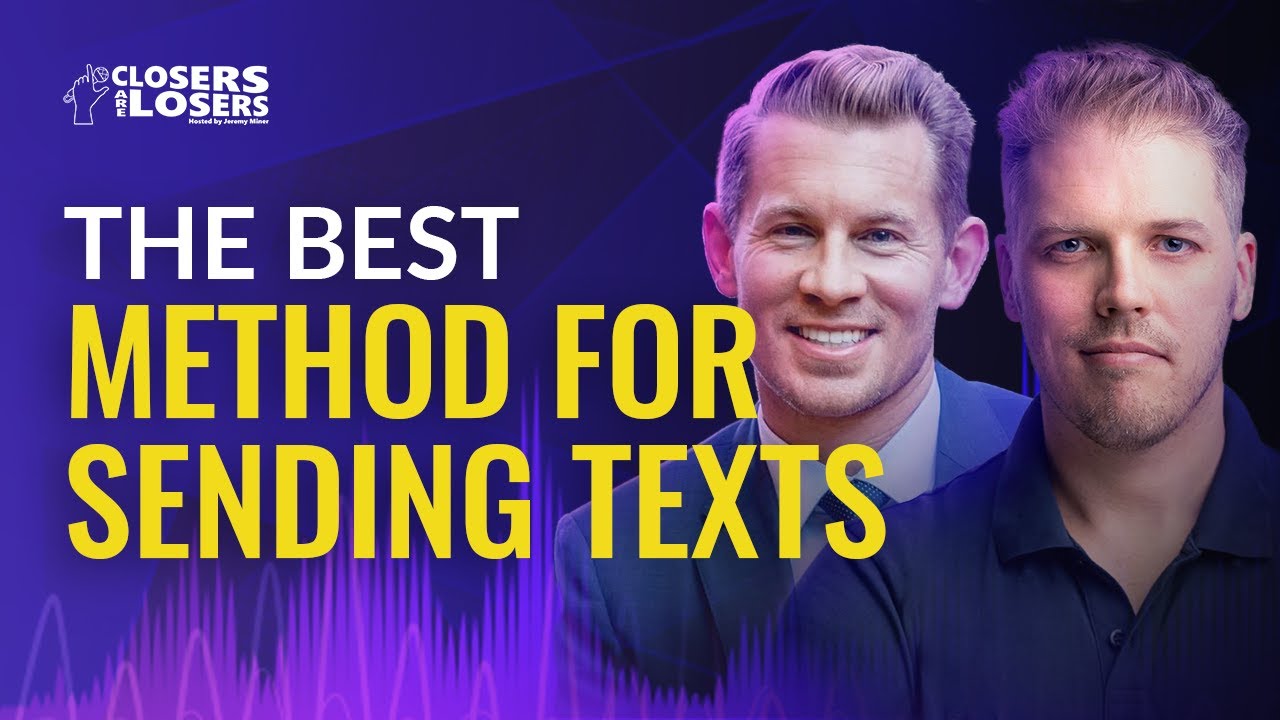The psychological trick behind getting people to say yes 2022
Summary
TLDRThe transcript discusses strategies for effective communication and negotiation, emphasizing the importance of not chasing after potential clients or jobs. It suggests 'retreating' to test genuine interest, as people tend to pursue those who are less eager. The script references 'The Wind Without Pitches Manifesto' and Jonathan Stark's advice on asking 'why' questions to engage the other party and make them sell themselves. It also cautions against using 'why' questions if not phrased correctly, as they can make people defensive. The speaker, Greg Gunn, promotes his podcast as a platform for further insights and personal stories.
Takeaways
- 🔍 Test interest by stepping back: Assess if someone genuinely wants to work with you by taking a step back to see if they follow.
- 🏃♂️ Avoid chasing: Chasing after opportunities can make you seem desperate and less attractive to potential partners.
- 🌪️ Retreat and follow: Practice 'retreat and follow' to let the other party show their interest by moving towards you.
- 🤔 Ask 'why' questions: Use 'why' questions to gauge the other party's commitment and urgency for the project.
- 💡 Test engagement: Kill engagement at least three times to ensure the other party is genuinely interested and not just reacting.
- 💼 Consider cost and value: When discussing why to work with you, highlight your value proposition and how it aligns with their needs.
- 📚 Learn from experts: Refer to experts like Blair, Jonathan Stark, and Chris Voss for strategies on engagement and persuasion.
- 🗣️ Use calibrated questions: Instead of 'why' questions, use calibrated or 'what' questions to avoid defensiveness and encourage open dialogue.
- 🔄 Be neutral and objective: Focus on open-ended questions that allow for a neutral and objective discussion of the project's implications.
- 🎧 Explore additional content: Greg Gunn invites listeners to engage with additional content on the podcast for more insights and stories.
Q & A
What is the main idea behind 'testing' someone's interest in working with you?
-The main idea is to assess whether the person is genuinely interested in collaborating with you without having to aggressively pursue them. This approach helps maintain a higher ground in the conversation and ensures that both parties are mutually invested.
Why is it suggested not to waste time with someone who isn't interested in working with you?
-It's advised to avoid wasting time because if someone isn't interested, no amount of persuasion or skill will make them change their mind. It's more efficient to focus on those who are genuinely interested and value your skills.
What does the concept of 'retreat and follow' mean in the context of the script?
-The concept of 'retreat and follow' refers to the strategy of taking a step back to see if the other party is interested in engaging with you. If they are, they will naturally 'follow' or show more interest, which is a sign of genuine engagement.
How does the 'Wind Without Pitches' manifesto relate to the idea of not chasing after someone?
-The 'Wind Without Pitches' manifesto suggests that when you chase after someone, they tend to 'run away', similar to how prey reacts in nature. Instead, it promotes the idea of 'retreating' to see if the other party is genuinely interested in engaging with you.
What are the three 'why' questions suggested by Jonathan Stark to gauge engagement?
-Jonathan Stark suggests asking 'why this', 'why now', and 'why me' to determine if the other party is genuinely interested and committed to the project. These questions help them to sell themselves on the necessity and urgency of the project.
Why might asking 'why' questions be effective in a negotiation?
-Asking 'why' questions can be effective because it forces the other party to justify their needs and decisions, revealing their true motivations and the urgency of the situation. This can lead to a better understanding of their perspective and needs.
What is the alternative to 'why' questions if you're still developing your communication skills?
-If you're still developing your communication skills, it's recommended to use 'what' questions instead of 'why' questions. 'What' questions are open-ended and less likely to make the other party defensive, allowing for a more neutral and objective conversation.
How can 'what' questions be used to gauge interest in a project?
-'What' questions such as 'What happens if you don't move forward with this project?' or 'What are the consequences of waiting?' can help you understand the other party's perspective on the project's importance without putting them on the defensive.
What is the significance of Greg Gunn's introduction at the end of the script?
-Greg Gunn's introduction serves as a call to action, inviting listeners to engage with additional content on the podcast. It highlights the value of the podcast as a platform for intimate conversations and personal stories, suggesting that it complements the content provided on YouTube.
Why is it important to listen to the podcast if you enjoy the YouTube content?
-Listening to the podcast is important if you enjoy the YouTube content because it offers a deeper dive into topics with intimate conversations and personal stories. It provides an additional layer of engagement and allows you to consume content while multitasking.
Outlines

このセクションは有料ユーザー限定です。 アクセスするには、アップグレードをお願いします。
今すぐアップグレードMindmap

このセクションは有料ユーザー限定です。 アクセスするには、アップグレードをお願いします。
今すぐアップグレードKeywords

このセクションは有料ユーザー限定です。 アクセスするには、アップグレードをお願いします。
今すぐアップグレードHighlights

このセクションは有料ユーザー限定です。 アクセスするには、アップグレードをお願いします。
今すぐアップグレードTranscripts

このセクションは有料ユーザー限定です。 アクセスするには、アップグレードをお願いします。
今すぐアップグレード5.0 / 5 (0 votes)






